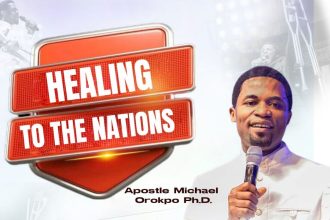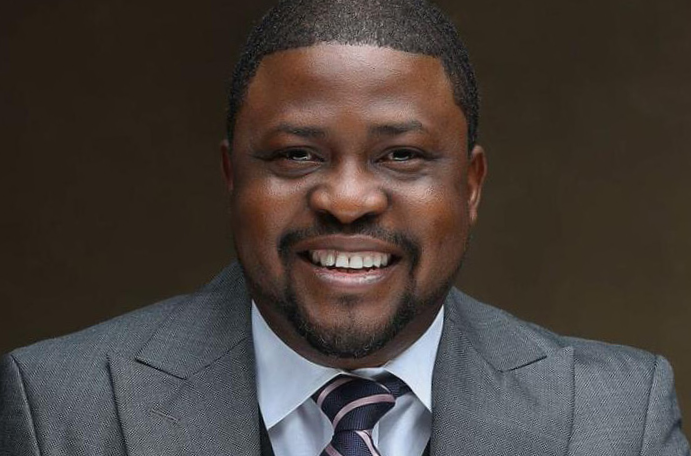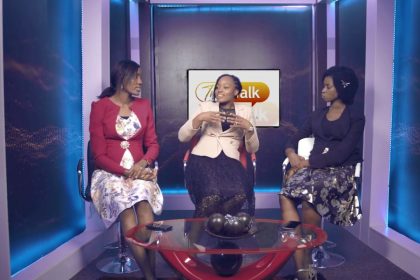Considered an outsider when appointed as the Chairman of the Pentecostal Fellowship of Nigeria (PFN), Lagos Chapter, last year, Pastor Yemi Davids is now seen as the bridge between the young and old in the polarised Christian body. He tells Vanessa Obioha his thoughts on mindset change, leadership in Nigeria,
and his mission to restore trust in the church.
It has been a demanding period for Pastor Yemi Davids, founder of Global Impact Church. Since he was appointed Chairman of the Pentecostal Fellowship of Nigeria (PFN), Lagos Chapter, last August, his responsibilities have grown more complex, requiring more attention. Yet, if the pressure weighed on him, it didn’t show. Walking into his tastefully furnished office on a recent Thursday afternoon, dressed in navy blue trousers and a crisp white shirt, Davids exuded the calm confidence of a strategist. His composed demeanour and sharp wit complemented his approachable charm, which was evident throughout our conversation. At one point, he joked about his love for rearing animals, saying, “I like to raise them for seven months, and then eat them afterwards.”
An indigene of Ogun State, Davids comes from a humble background. His mother, determined to give him a good education, often found herself at odds with his father, who preferred he attend a public school in Amuwo Odofin, Lagos, where they lived.
“There were lots of arguments between my mother and father because of that decision,” he recalled. “But my mother hustled to pay my fees. She was very entrepreneurial, finding opportunities like subcontracting painters for buildings to make ends meet.”
It was during his secondary school years at Abeokuta Grammar School that he discovered his calling, joining the Scripture Union and beginning his journey in ministry.
“When I come home, our neighbours attend Baptist church. My mom used to attend Anglican. So, the neighbors that go to Baptist would persuade her to let me attend their church. You know, that kind of energy as young boys. I used to go with them to Baptist church. That Baptist experience started the journey.”
His dedication to ministry was not embraced by his parents initially.
“My mom and dad were not really born again then,” he shared. “And you know, in secondary school, the energy is there, and there are certain things we were taught. So, when you go home for a holiday, and you refuse to do certain things, they are puzzled. They ask you why, and you tell them that you are born again; they are like, what is that? And then maybe your grades were not up to par, they would easily conclude that it’s that fellowship thing. It was not easy then.”
His parents would eventually accept his decision after also becoming born again.
Davids would go on to become a campus pastor at Obafemi Awolowo University, where he studied Urban and Regional Planning, and even wrote to Bishop David Oyedepo of Living Faith Church Worldwide for mentorship while in university. He got a reply two years later. He founded Global Impact Church in his 20s and now in his late 40s, he has assumed a role that could sometimes be challenging.
Last August, Davids emerged as the Chairman of the Pentecostal Fellowship of Nigeria (PFN) Lagos chapter. PFN is an umbrella body for several Pentecostal churches in Nigeria, promoting unity and cooperation among them, but the body is sometimes riddled with internal politics, thereby making some clergymen stay on the sidelines, particularly the younger pastors.
“Things have happened in the Pentecostal body in Lagos for some years that have kept some part of the body of Christ in Lagos away, perhaps based on their perception,” he shared. “Some of us were also kind of not fully involved, but we’ve been involved one way or the other. The national president, Bishop Wale Oke wanted some inclusivity, that is, those people who had not been fully involved or not even involved at all. His own thought was to let someone in that bloc step out to contest.”
Davids revealed he was approached to contest for the leadership of Lagos Chapter. Ordinarily, he shared, he wouldn’t have contested.
“I would have wanted someone else to contest. It took a lot to be persuaded to do it. Maybe because I also understand how the body — the body of Christ — works. Not one church can do it, so it has to be a collective effort. Because I have a passion for that on the side, that also made me consider it. So I said, okay, at least it’s not that I’m assuming the role automatically, there will be an election. I remember praying that, even if it’s just by one vote, let me lose the election so it wouldn’t look like I said no, and the system also said no. But I won the election.”
With this new mantle of leadership, the clergyman is committed to unifying the body but first, he has to confront his most daunting challenge: mindset.
“It’s just our society where you have older people who are in the system, and maybe set in their ways. And you’re coming with innovative ideas and new things, and you don’t want to push because you have to put yourself in their shoes, too. That process for a younger person sometimes can be daunting.”
Davids is now seen as the bridge between the old and the young, working towards restoring trust in the church.
“If I’m sent to you, and I know you don’t trust me, I’ve lost my job. So, God sent us as pastors to people, but when the people you are sent to don’t like you, don’t believe in you, then it’s going to be a lot of work. What can we do to change that?”
“And about being a bridge,” he continued. “The challenge we also have with younger people is this, they try to take the old generation for granted but I strongly discourage that. I’m close to them (the old) a bit, and understand their own situation. Like your parents, they can never think like you, because the kind of education they had is different but they did their own part. Don’t now say because you are more tech-savvy and more exposed, you can now dishonour them. No, don’t do that. You’re going to grow old one day. So, the question is, can you please learn some things from them that will help you grow while you have your newness, your paradigm, which is fine, praise God. But there are things you can pick from them. But if you don’t honour them, you will lose that thing, and you’ll pay dearly for it.
He buttressed his point with the story of Saul and David.
“Saul was so passionate about killing Goliath that he gave his armour to David but David said he can’t use it, rather he chose to use his sling and stone. Can you imagine if Saul had insisted he used his armour? If David had tried that, he would have been dead. So, the older people must agree that the ways of doing things now are different.”
Part of the work Davids is also doing at PFN Lagos Chapter is training pastors, particularly those with politics and governance shaping through the Directorate of Politics and Governance (DPG).
“I once said something in a forum some time ago that we are used to Bible schools in Nigeria, well, Africa, and which is good, but don’t forget, if you train a lot of carpenters and you don’t train painters, you will have good carpentry work, but bad painting. Bible schools are good, but don’t blame the members of the church when they go into politics and they mess up because there’s no training for them.”
He clarified that the DPG is not tasked to support a political party, or have a particular party to win an election. Rather it is to “educate the body of Christ about PVC, about voting, and how we can also develop the kind of training systems. Believe me, if things are going to be different in Nigeria, it’s going to take maybe two or three decades but the journey must start now because if we don’t, things are going to get worse.”
As one who is passionate about African leadership, he considers love as the foundation of leadership.
“What we are missing is love-centred leadership where the love for humanity comes first and inspires the kind of projects you embark on as leaders.”
Concerning criticisms about the church being responsible for some of the problems in Nigeria, Davids said he has mixed feelings about such thoughts.
“First, I’m happy to think like that. That means they’re expecting a lot from the church,” he said but on the other hand, “I don’t like when they put the inefficiencies of governance on the church. Face the government. Don’t make it look like the church caused the bad roads. People say that most of the warehouses are now used as churches, was it the church that chased away the factories? No. In fact, it’s a plus that the church is making good use of the warehouses but don’t blame them for the exodus of most of these factories. Most of them left because of maybe escalation of exchange rates, economic policies and it didn’t start with the current government.”
If there is one thing Davids hopes the body would achieve is regulation in the church so that people will not fall victims to fake pastors which has become rampant.
However, he hopes to leave a legacy of relevance at the end of his tenure.
“I don’t like the wrong sentiments about pastors and churches out there today, I would want a mind shift. And I would also want younger leadership. I would love to hand it over to a younger person.”







